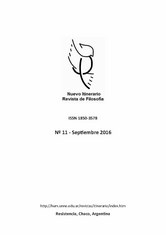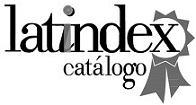Democracy, Aesthetics and Freedom in the Practical Philosophy of Juliane Rebentisch: Attempts From the Thought of the Political
DOI:
https://doi.org/10.30972/nvt.2027913Keywords:
Democracy, Aesthetics, Freedom, Critical Theory, Post-foundationalismAbstract
The tradition of Critical Theory linked to the Frankfurt Institute for Social Research has often been periodized taking into account the successive generations of thinkers who animated it. From this time frame, the so-called “third generation” of Critical Theory renewed its main lines of research by incorporating into the German tradition of thought the developments of French post-foundationalism. In the same vein, a representative of the “fourth generation”, Juliane Rebentisch (2024; 2013), finds in the theories of Claude Lefort (1990; 1985), Jacques Rancière (2007; 2006) and Jacques Derrida (2011; 2005), new ways of approaching problems typical of German idealism, such as that of aesthetic appearance, in its always conflictive link with democratic politics. We propose as an objective of our work to highlight both Rebentisch's thesis in this respect, as well as the main sources that nourish his proposal concerning a reinterpretation of the current phenomenon of the aesthetization of politics. Following this development, and taking now a set of elements from Miguel Abensour's (2007; 1998) political philosophy, we suggest an alternative interpretation of democracy.
References
Abensour, M. (1998). La democracia contra el Estado. (Trad. Eduardo Rinesi). Colihue.
Abensour, M. (2007). Para una filosofía política crítica. Ensayos. (Trad. Scheherezade Pinilla Cabañas y Jordi Riba). Anthropos.
Adorno, Th. (2011). Dialéctica negativa. La jerga de la autenticidad. (Trad. Alfredo Brotons Muñoz). Akal.
Adorno, Th. (2019). Sobre la teoría de la historia y de la libertad (1964-1965). (Trad. Miguel Vedda). Eterna Cadencia.
Benjamin, W. (2003). La obra de arte en la época de su reproductibilidad técnica. (Trad. Andrés Weikert). Ítaca.
Derrida, J. (2005). Canallas. Dos ensayos sobre la razón. (Trad. Cristina de Peretti). Trotta.
Derrida, J. (2011). Khȏra. (Trad. Horacio Pons). Amorrortu.
Galfione, M.V. (2017). Juliane Rebentisch: Die Kunst der Freiheit. Zur Dialektik demokratischer Existenz. Areté, Vol. 25(1), 215-223. https://revistas.pucp.edu.pe/index.php/arete/article/view/18969/19195 DOI: https://doi.org/10.18800/arete.201701.009
Habermas, J. (2014). Teoría de la acción comunicativa. (Trad. Manuel Jiménez Redondo). Trotta.
Kant, I. (2014). Crítica de la razón pura. (Trad. Pedro Ribas). Gredos.
Kantorowicz, E. (2012). Los dos cuerpos del rey. Un estudio de teología política medieval. (Trads. Susana Aikin Araluce y Rafael Blázquez Godoy). Akal.
Lefort, C. (1985). El problema de la democracia. Opciones. Revista del Centro de Estudios de Realidad Contemporánea, (6), 73-86.
Lefort, C. (1990). La invención democrática. (Trad. Irene Agoff). Nueva Visión.
Marx, K. (1987). Escritos de juventud. (Trad. Wenceslao Roces). Fondo de Cultura Económica.
Rancière, J. (2006). La política de la estética. Otra parte. Revista de letras y artes, (9). https://www.revistaotraparte.com/op/cuaderno/la-politica-de-la-estetica/.
Rancière, J. (2007). El desacuerdo. Política y filosofía. (Trad. Horacio Pons). Nueva Visión.
Rebentisch, J. (2013). Estetización: ¿qué relación existe entre la estetización y la democracia, por qué se la debería defender, por qué motivo es necesaria la filosofía para hacerlo y qué se sigue de este hecho para la crítica de la sociedad? En V. Galfione y E. Juárez (comps.), Modernidad estética y filosofía del arte. Tomo I. La estética alemana después de Adorno (pp. 111-137). Gráfica 29 de mayo.
Rebentisch, J. (2024). El arte de la libertad. Sobre la dialéctica de la existencia democrática. (Trad. Maximiliano Gonnet). UBU.
Rosanvallon, P. (2016). Por una historia conceptual de lo político. (Trad. Marcos Mayer). Fondo de Cultura Económica.
Žižek, S. (2003). El sublime objeto de la ideología. (Trad. Isabel Vericat Núñez). Siglo XXI.
Downloads
Published
How to Cite
Issue
Section
License

This work is licensed under a Creative Commons Attribution-NonCommercial 4.0 International License.
Les autores ceden a Nuevo Itinerario los derechos de publicidad de sus trabajos, toda vez que hayan sido admitidos como parte de alguno de sus números. Ello no obstante, les autores retienen los derechos de propiedad intelectual y responsabilidad ética así como la posibilidad de dar difusión propia por los medios que consideren.












51.jpg)

